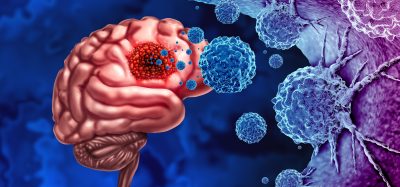Cancer cells ‘persuade’ healthy cells to help disease grow
Posted: 14 April 2016 | Victoria White, Digital Content Producer | No comments yet
Cancer cells use a mutant gene to coerce neighbouring healthy tissue into helping with the disease’s growth and spread, a major new study reports…


Cancer cells use a mutant gene to coerce neighbouring healthy tissue into helping with the disease’s growth and spread, a major new study reports.
Healthy cells are persuaded to release unique growth signals which cancer cells can use to multiply but cannot secrete themselves, researchers found. Their study sheds light on how cancer cells and normal cells communicate with each other, and could open up new approaches to cancer treatment.
Scientists at The Institute of Cancer Research, London, and the Cancer Research UK Manchester Institute based at The University of Manchester found that faulty versions of the KRAS gene – often mutated in cancer – can have an important effect on healthy tissue. Normal KRAS makes occasional signals that tell a cell to divide, but when mutated the gene becomes hyperactive and helps drive cancer cells’ rapid and uncontrolled growth.
In the new study, researchers found that mutated KRAS also plays an important role in turning healthy ‘stromal cells’ into cancer’s allies. The study showed for the first time that there is a communication loop with a cancer-causing gene controlling cancer via healthy stromal cells.
Cell communication networks in pancreatic ductal adenocarcinoma
The researchers studied communication networks in cells from pancreatic ductal adenocarcinoma.
The team studied thousands of different growth factors, proteins, and receptors across different pancreatic ductal adenocarcinoma cells to see how signals were being transmitted. They recognised well known pathways that KRAS uses to communicate with neighboring healthy cells but also noticed something unusual. By monitoring proteins in the two cells at the same time, they discovered that healthy cells were responding with a totally new message – a message that doubled the capacity for KRAS to drive malignant behavior in the cancer cells.
Study author Dr Chris Tape, Sir Henry Wellcome Research Fellow at The Institute of Cancer Research, London, said: “What our research underlines is that cancer cells do not drive the growth and spread of tumours alone – they can bully their healthy neighbours into helping them. Some pancreatic tumours have more healthy stromal cells within them than they do cancer cells, so understanding how cancer cells turn their neighbours into allies is critically important. We have discovered exactly how cancer cells can persuade stromal tissue to secrete key growth signals, and in doing so opened up exciting new possibilities for treatment.”
Related topics
Oncology
Related organisations
Cancer Research UK, The Institute of Cancer Research (ICR)







